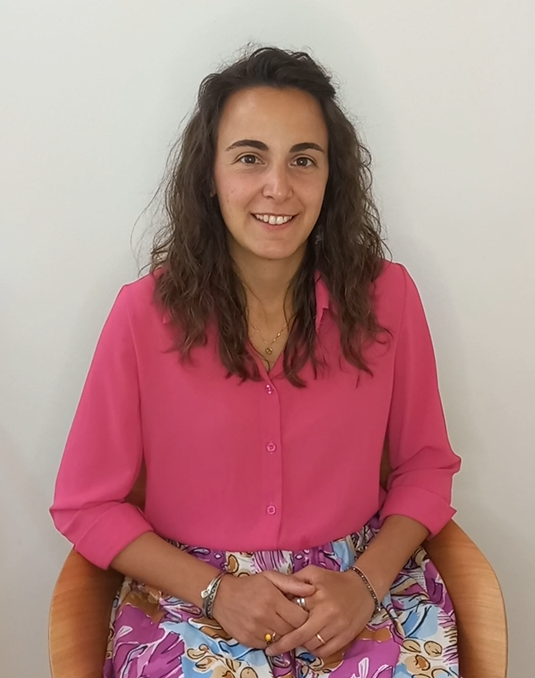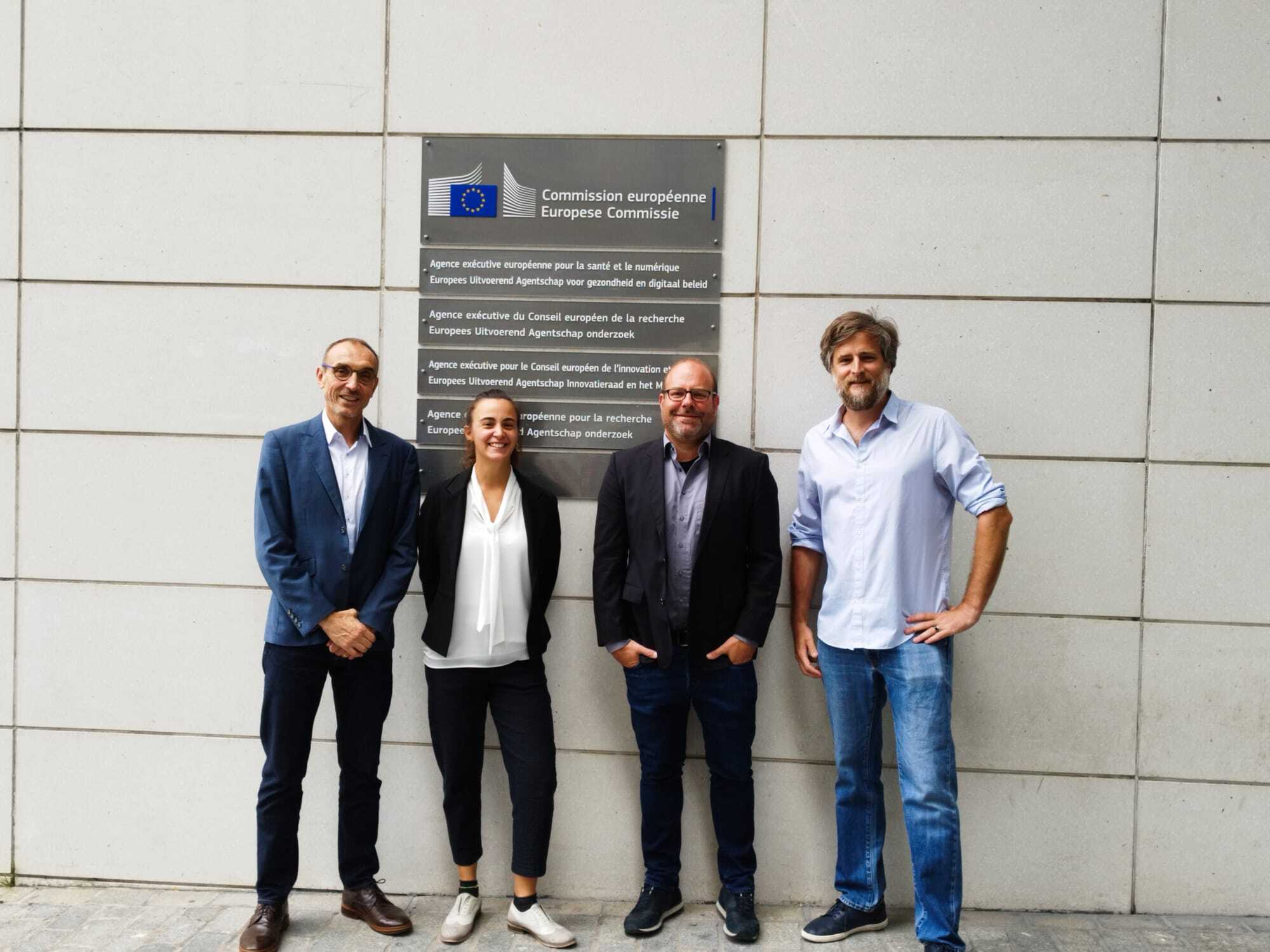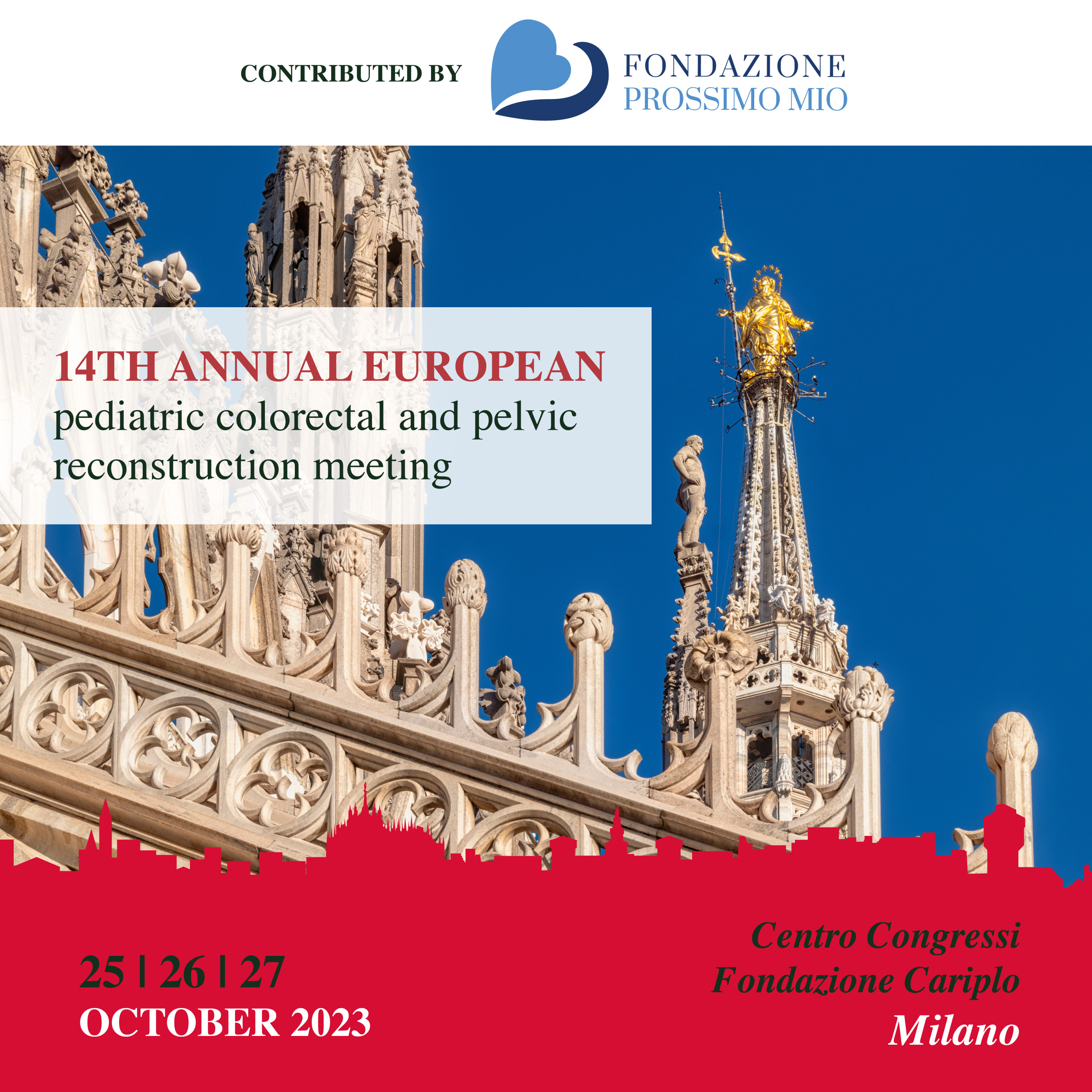Interview with Valeria Fumagalli

We interviewed Valeria Fumagalli, a researcher at the Università Vita-Salute San Raffaele in Milan and a grant winner of the Fondazione Prossimo Mio. The researcher carries out her work at the type P3 bio-security laboratory, the only one in Italy and in the world in which the in vivo study of infections, such as SARS-Cov-2, may be done with the advanced technologies of imaging and sequencing.
1) Tell us about your education and training
VF: I attended the course of medical biotechnologies at the Università degli studi Milano Bicocca. My Master’s degree thesis was on infant leukemia, which I was able to study thanks to some time spent at the Fondazione Matilde Tettamanti Menotti De Marchi Onlus. I later won a grant at the Università Vita-Salute San Raffaele in order to do a doctorate in the laboratory of Professor Luca Guidotti and Professor Matteo Iannaccone. Then for two years I did a post-doctorate with them, and I won a position as a contracted researcher at the Università Vita-Salute San Raffaele, where I continue to do research and have introduced teaching hours.
2) What do you do at the Università Vita-Salute San Raffaele?
VF: The laboratory where I work is called Immuno patologia e dinamica delle risposte immunitarie, and it is focused on the study of the interactions of hosts and pathogens, especially viruses, in order to understand what weapons of the immune system are good for eliminating viruses and which, instead, are harmful for this, in order to be able to find new mechanisms that can be proposed as new therapies or preventative actions when dealing with viral infections. Recently, thanks to various donations including that of the Fondazione Prossimo Mio, we have been able to set up a new laboratory dedicated to the study of the Corona virus. This laboratory has a type P3 level of security, which allows us with little risk to study the Corona virus respiratory infection and its resulting lung pathology. The research activity concentrates on how the immune system can be modulated in order to defeat the pathogen.
3) What are the procedures for getting access to the laboratory?
VF: This laboratory has a type P3 level of bio-security. With little risk we can study viruses that are dangerous to humans such as Hepatitis B and, recently with a new set-up, the Corona virus, too. To enter the laboratory we have to put on a coverall, two pairs of shoe covers and gloves, a head cover, and a mask. To enter the room dedicated to the Corona virus, we also have to put on another pair of shoe covers and gloves, another coverall, and the Versaflo helmet, which has an intake air filtering system to protect the wearer from the virus being studied.
3.2) How is a Versaflo helmet put on?
VF: In the beginning it was fun even if it was challenging. It was fun because it seemed like being an astronaut, but it was challenging because – in addition to having to wear many layers – the intake of air in the helmet creates a flow that echoes in the ears and is a bother. Thankfully, you get used to it, and work well just the same.
4) What are the next steps?
VF: The next steps of the laboratory are to continue studying respiratory infections and the resulting lung pathologies because, even if interest in the Corona virus has gone down, it is important to continue to create knowledge in this field as it was for SARS COV 1 and MERS. Those who don’t study history are condemned to repeat it! In fact, the studies done on these two viruses were used for the SARS-CoV-2 pandemic, and so vaccines were rapidly found. Without that previous knowledge, it would not have been possible. It’s good to continue to do research because there’s always something new to discover that may be used for new viruses, infections, and pathologies.
5) How did you choose this field, and what advice would you give to someone who wants to become a researcher?
VF: I decided to begin this journey and to become a researcher because during the first science lesson dedicated to the cell in high school I was struck by how such a small organism could contain all the information necessary for functioning and for making what it had around it function. Moved by the desire to know and to understand the mechanism of cells, I continued my studies in biology and immunology. This continuous research and the discovery of the new has always fascinated me more and more, and made me love what I do. I’m happy.
For this job you must be motivated, never give up, and confront problems with a smile because 99% of research ends in failure. That 1% of success, though, gives you a lot of satisfaction because it can be applied to the cure for a pathology and to help people.
There are opportunities, and I am lucky, I admit it, to work in a laboratory that has the necessary economic resources and that realizes very advanced studies and research. You must seek opportunities out. They exist in Italy, and it’s possible to do good research.
Thank you.
--------------------------------
26/10/2023
An international team of researchers including Valeria Fumagalli has received one of the most important research grants in the EU funding landscape, the ERC Synergy Grant, to explore new immunotherapy approaches for liver metastases.
Here is the whole article

